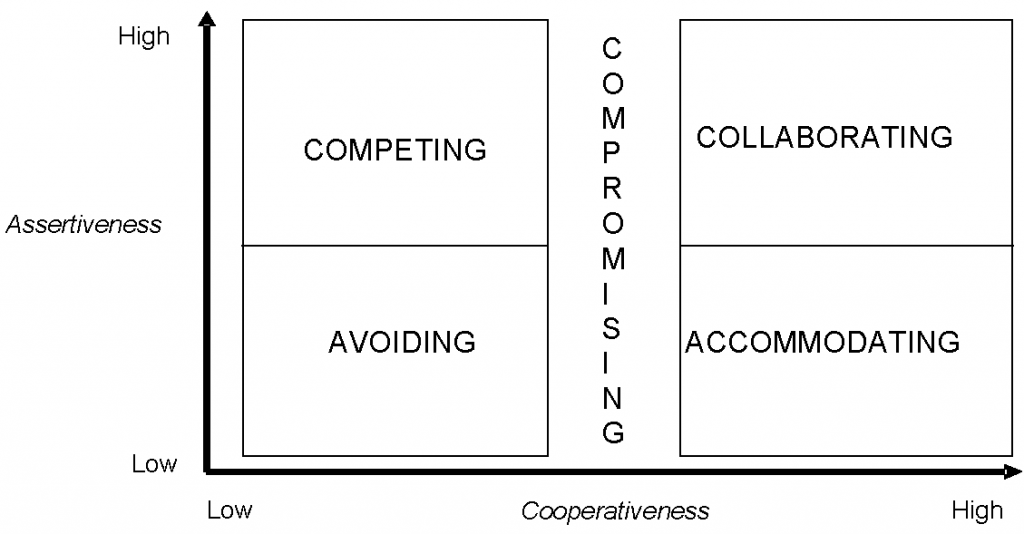Conflict is part of any dynamic business organisation. It arises because people care and want to do their jobs well. Conflict is beneficial when the focus is on finding the best solution. It becomes destructive when the focus is on people and “winning at all costs.”
Conflict arises because of limited resources; differing goals, responsibilities and priorities; and differing ideas or interpretations. Conflict is especially difficult when it does not produce solutions and becomes personal.
The goal of a manager or Coach should be to avoid “win-lose” situations and to ensure productive resolution of conflict. Effectively working through conflict results in stronger working relationships and encourages creative solutions – while handling conflict inappropriately results in damaged relationships and inhibits the expression of valuable opinions.
Valuable tips
- Put yourself in the other person’s situation and imagine how you would feel and react. Look at the other side before defending your own.
- At the beginning of a conflict discussion, express your desire for a resolution that is acceptable to both or all of you.
- Restate the positions held by those on both sides of a conflict: look at it as a conflict of ideas or approaches, rather than of people.
- Do not lecture about why you are right. Simply state your point of view.
- Bring conflict into the open without feeling that your leadership is threatened. When people disagree with you, analyse the reason for their position.
- Ask a neutral third party to help you and the conflicting party to talk through the problem. Your HR team will always help to mediate such a situation.
- When a conflict situation arises, discuss it with your manager. When you have handled it, seek feedback from him or her about how successful you have been.
- Allow individuals to vent their anger. Venting frustration allows them to get it out in the open and allows you to work through the conflict.
- Clearly tell the other person the things you both agree on before dealing with their points of disagreement. This approach provides a positive starting point and builds bridges between you.
- If the other person feels they are losing something or that you are being unfair, listen to what the person is saying; don’t try to convince the person that he or she is wrong.
- Attack problems – not people.
- If a conflict escalates, call for a time out. Reconvene when you have both reduced your tension to a productive level and you have both regained your perspective.
- Instead of showing frustration, talk about it.
- Be willing to confront other individuals when you feel they have made an error.
DP use the Thomas-Kilmann Conflict Mode Instrument. This is designed to assess an individual’s behaviour in conflict situations – situations in which the concerns of two people appear to be incompatible.
You can review this model and download a PDF version to complete the questionnaire to establish your current style of managing conflict and disagreements and anise these results to assess how changes might be beneficial to you, your colleagues and your team.
Click here to download a PDF version of further notes concerning the management of conflict and disagreements – and a copy of the Thomas-Killman instrument for you to complete and analyse your own style.

